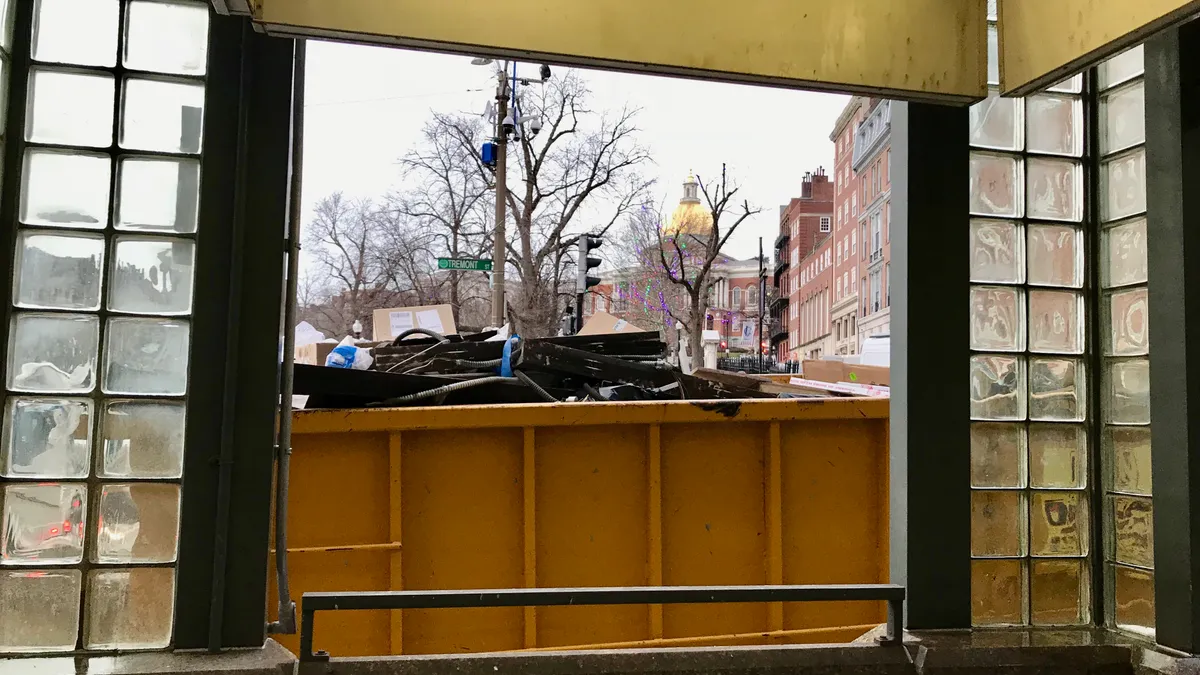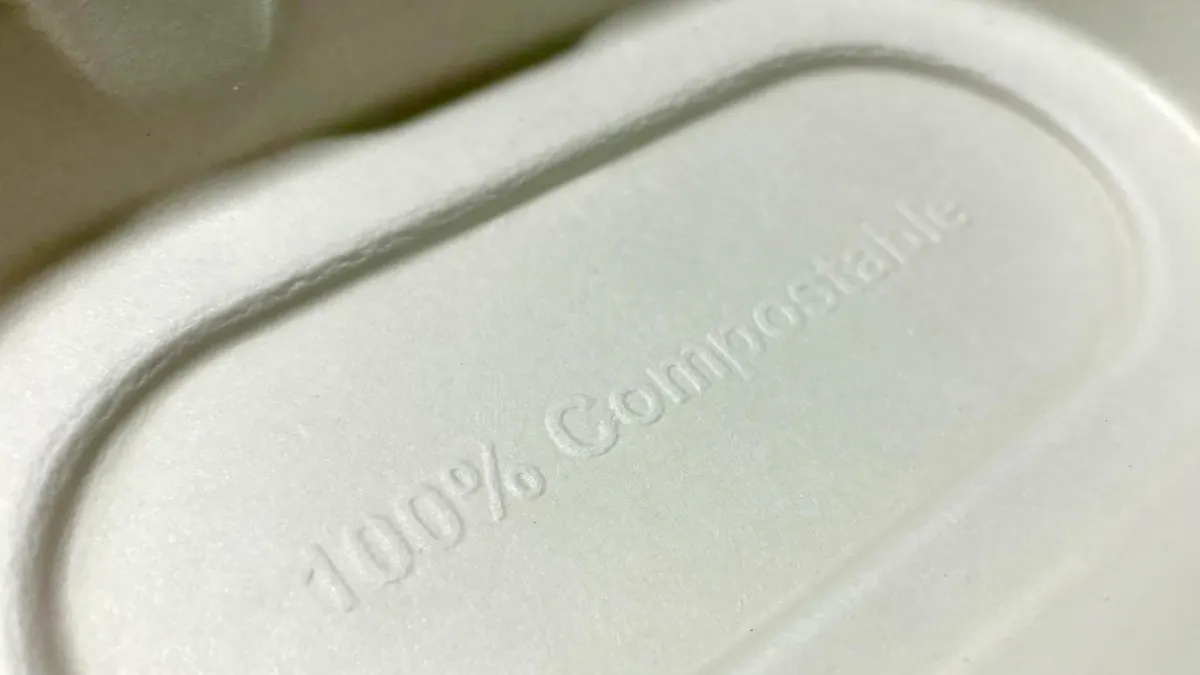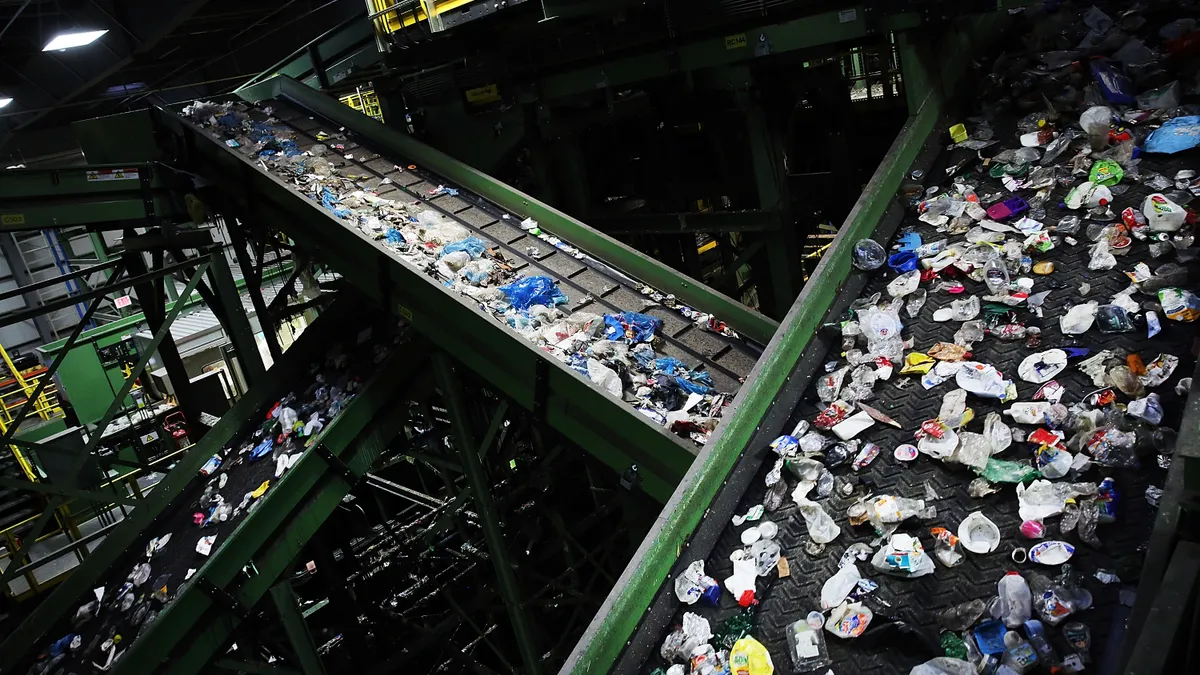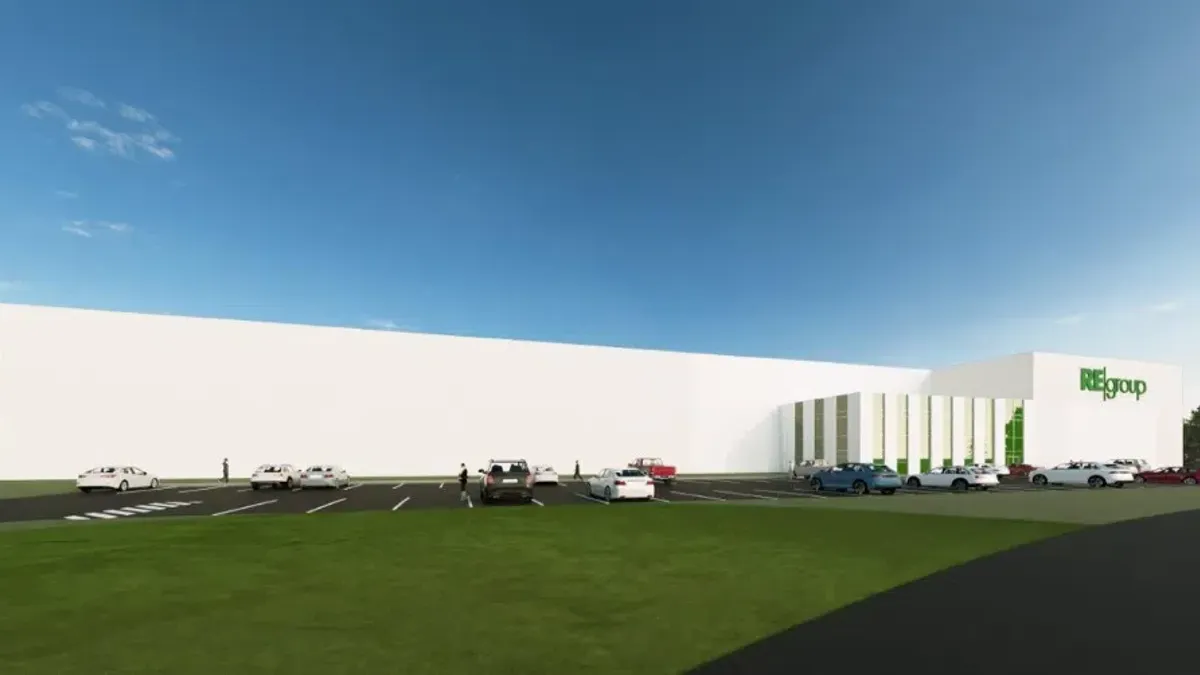New Hampshire's waste and recycling infrastructure is in need of significant and long overdue attention, according to a new report from state legislators.
These findings come from a special committee, established by law in July, to study recycling and waste management in the state. The group held 14 meetings and met with more than 50 stakeholders in a little more than two months to examine the state's recycling programs in light of commodity market changes and ongoing industry challenges.
"[At first] I was pretty focused on the changing recycling markets because of the Chinese initiatives... We were thorough about how we broadened it out and got a lot of good input," Rep. Karen Ebel, who led the legislative committee, told Waste Dive. She said the report ended up containing a lot of waste-related information not pertaining directly to recycling because "things are so interconnected."
Top to bottom review
The 27-page report contains 39 findings and 23 recommendations. An overarching theme is that New Hampshire's waste management lags other states, especially its neighbors, and more should be done to help municipalities with their programs. Chronic underfunding for the state's Department of Environmental Services (DES) due to budget cuts is a recurring theme.
"There was a considerable amount of testimony indicating the Department of Environmental Services doesn't have the resources it needs to provide strategic planning and forward-thinking actions to help the state of New Hampshire actually reduce its waste," said Reagan Bissonnette, executive director of the Northeast Resource Recovery Association (NRRA), who attended most of the committee hearings and testified numerous times.
The report recommends creating a dedicated funding source for DES based on a per ton disposal charge for all waste landfilled or incinerated in the state.
DES' lack of funding and resources has created a ripple effect into other aspects of New Hampshire's waste and recycling sphere. The department is supposed to update its solid waste management plan every six years but hasn't done so since 2003. DES is currently in the process of drawing up a new one. The report suggests extending the plan update time frame from six years to 10 years.
In addition, the legislative committee found DES doesn't have the capability to adequately calculate if the state is meeting its 40% diversion goal. Therefore, one of the recommendations is to eliminate the 40% diversion goal and opt for new disposal reduction goals, so that "DES is able to calculate how much waste is being disposed of in New Hampshire and then reduce that amount of waste... instead of focusing on how much is being diverted away, which is not possible for DES to measure," Bissonnette said. The committee supports a 25% disposal reduction rate by 2030 and 45% by 2050.
Other key findings revealed that about 50% of the solid waste disposed of in New Hampshire comes from out of state, and landfill capacity is rapidly tightening.
"That was surprising to me, the issue of landfill capacity. There's a fall-off coming with permitted capacity in 2024," Ebel said. DES predicts the beginning of a capacity shortfall from 2025-2034 and a significant shortfall after that. "More and more states in the region will be using more and more of our capacity, as are we. We have to do something. The situation has gotten out of hand," Ebel said.
A key way to reduce waste — and an area of great opportunity highlighted throughout the report — is increased food waste reduction and composting. Food diversion stands to save municipalities money on tipping fees in addition to preserving landfill capacity. But a legislative update is needed because New Hampshire has meat and dairy composting restrictions that other states do not, meaning the state is "surrounded by states with thriving composting businesses," while its own citizens — especially farmers — are asking for expanded composting permissions and accessibility, Bissonnette said.
The report seeks evaluation of opportunities to better manage other materials as well, including glass — which is "a big problem for everyone," Bissonnette said — and plastics. It cites the need for a plastics "circular economy" and greater buy-in from manufacturers. It also recommends examining the viability of bans for certain materials.
Recycling plans and beyond
Even though the committee ended up taking a much broader look at New Hampshire's waste and recycling than initially anticipated, the report does contain a lot of information pertaining specifically to recycling. Stakeholders told the committee that "there really needs to be a lot more education with respect to what folks can recycle, what they can't and standardization with guidelines" and recycling signage, Ebel said.
More education is viewed as vital to achieving less single-stream recycling contamination.
"In a weird way, by China tightening its contamination percentages they did us a favor because it's pointing out all the warts in the system," Ebel said. She highlighted the recycling industry shifts that have occurred recently, such as Chinese companies investing in U.S. paper mills to recycle mixed paper and an uptick in domestic processing activity.
Still, she said, recycling is only one piece of the greater waste management puzzle. "We focus so much on recycling. But we need to reduce the sources and figure out other pathways."
Industry participants consider this report important for creating positive change within New Hampshire's waste and recycling industries in the coming months and years. Ebel said lawmakers were struck by how interested people are in the topic and their eagerness to improve the system. Private stakeholders from Waste Management, Casella and Wheelabrator to advocacy groups including the Northeast Recycling Council and Conservation Law Foundation were among those who came out to testify.
"I hope that lawmakers take notice of this report and recognize there's more we can be doing to support municipalities in New Hampshire as they deal with the challenges of this current recycling market," Bissonnette said. "The municipalities are bearing the burden because they're trying to deal with these complex issues on their own, and they're challenges that [municipalities] didn't even start."
Legislators are seemingly taking notice, based on the numerous pieces of suggested legislation that Ebel says are being discussed for when a new session begins in January.
"We're going to try to do a lot in the next session to see if we can move the ball forward," Ebel said. "First of all, we want to establish a working group within DES to review our solid waste management laws and help jump-start the whole forward-looking process on behalf of the state."
Other legislative priorities include creating a per ton disposal charge for the dedicated fund, changing the 40% diversion standard, advancing composting opportunities and examining viable recovered glass uses. Lawmakers hope the collective measures will ease some of the burden on New Hampshire communities, many of which have felt the market effects heavily.
"As far as the public is concerned, I would say they should keep encouraging the municipalities to stick with their recycling programs because things will get better," Ebel said.

















